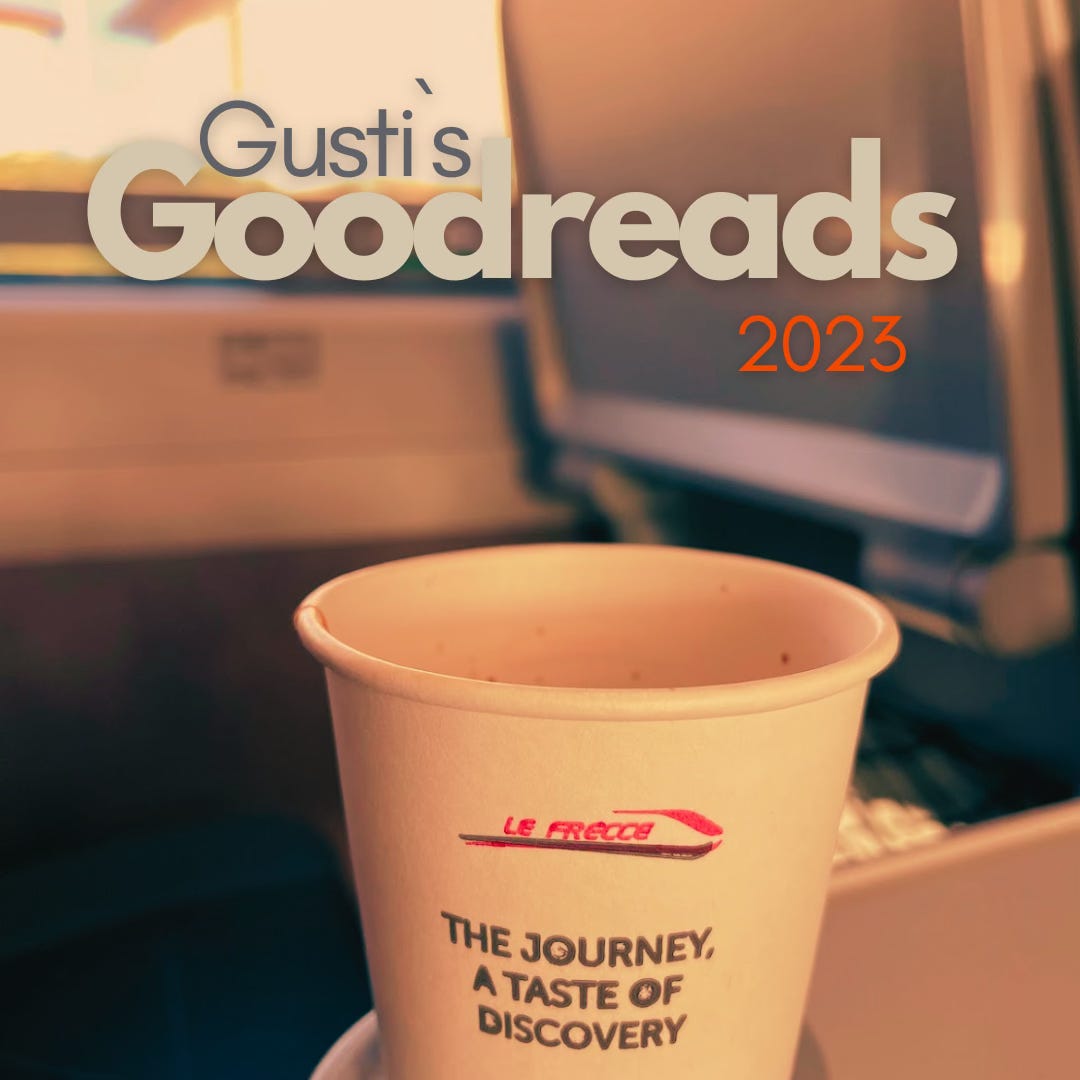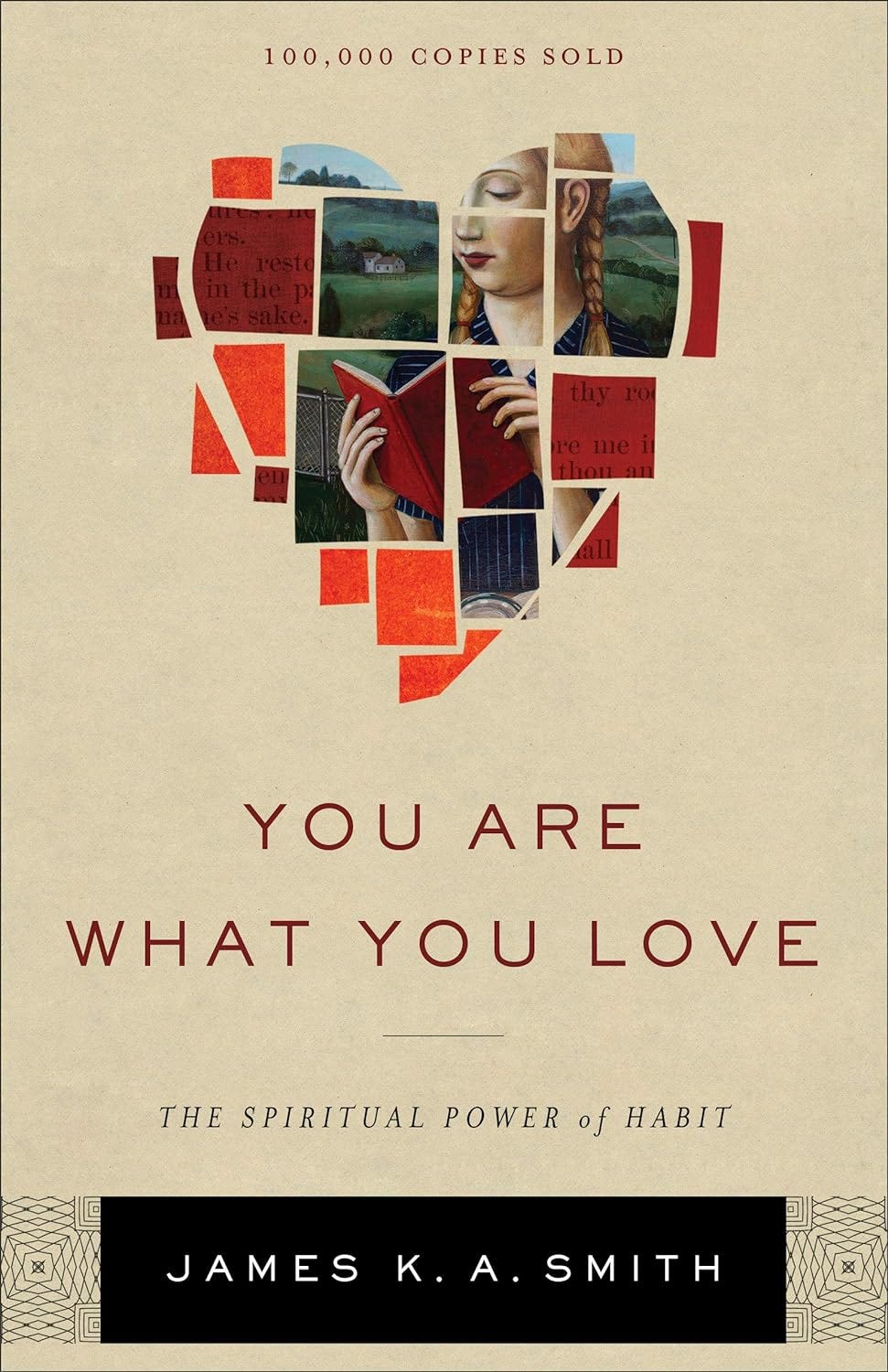My good reads of 2023
It is all about a relationships
Why do we read what we read? How does it really impact us? Do we even remember what we read? You may not have the perfect answer, but reading remains one of many's greatest joys.
As a child, I was fascinated by books, especially novels. Although the genre has changed, my passion for reading has remained. Nowadays, I am more interested in the ideas presented in books than in the authors' prominence. I rely on Goodreads and Kindle to track how many pages I have read, as I tend to forget most of what I read unless I teach it or intentionally practice it.
I have selected ten books that I found the most thought-provoking in 2023. I have also included some of my reading highlights for a sneak peek.
While compiling this list, I recognized that the theme of the year was relationships, whether with God, others, culture, age, or our past.
I judge a meaningful read based not only on the information it provides but also on the questions it prompts me to ask. Here are ten books; after the book of the year, the rest are listed in random order, each with an idea or question that stuck with me.
*Book of the year*
You Are What You Love: The Spiritual Power of Habit by James K. A. Smith
My takeaway: What are your wants?
…only about 5 percent of what we do in a given day is the outcome of conscious, deliberate choices we make, processed by that snowball on the tip of the iceberg that is human consciousness. The rest of our actions and behaviors are managed below the surface, by all sorts of learned yet now unconscious ways of intending and navigating the world.1
To be human, we could say, is to desire the kingdom—some kingdom.
You are what you love because you live toward what you want.
We are oriented by our longings, directed by our desires.2
So if you are what you love, then you make what you love. Your cultural labor—whether in finance or fine arts, as a fireman or a first-grade teacher—is animated less by “principles” that you carry in your head and more by habits of desire that operate under the hood of consciousness.3
My takeaway: Live your life as a part of an ambassadorial community
The author is an Oxford graduate and leader of one of the oldest Bible societies, the British and Foreign Bible Society.
Taking from the narrative of exile, he emphasizes that as Christians, we should not view ourselves as aliens or tourists in other cultures but as ambassadors.
“But a third way of living as a stranger in a foreign land is to live as an ambassador. An ambassador is still a stranger who still might miss home, but they’re not resentful, and they don’t feel trapped. Neither are they disengaged, because they know they’re living in a strange land on purpose. They’ve been sent there. They have a job to do. They try to understand the dominant cultural story in their new country, but they are completely secure in their own. They know they can expect all the help that they need from their home country. God’s call on Christians is to this third way.”
The church needs to imagine itself again as a microcosm of what society could be rather than as a religious club within it.4
My takeaway: Trust is the coin of leadership
There are two significant patterns that I encounter again and again in my work as a leadership coach: one is trust, and the other one is self-awareness. The first one jumps into any conversation, while the second is more subtle. This book by Dr. Henry Cloud puts language to the longing for trust, the cause of distrust, and the repair we can have. I dedicated an entire post to this book; you can check on the toLeadWell blog.
Humans are literally wired for trust, as trust is the fuel and currency that makes all of life work, from the very beginning until the very end.5
My takeaway: Relationships are the medicine of life.
You can read a top-read article I wrote about this book on this blog.
But here’s what science can tell you: Good relationships keep us happier, healthier, and help us live longer. This is true across the lifespan, and across cultures and contexts, which means it is almost certainly true for you, and for nearly every human being who has ever lived.6
My takeaway: Mind your own mind
The study found that, on average, we spend nearly 47 percent of our waking hours in a mind-wandering state. For almost half our lives, we think about something other than what we are doing.7
The greatest regret of people at the end of their lives was living for the approval of others.8
My takeaway: What is the battle raging beneath?
This was a soul-piercing book. In my soul-searching conversation serving leaders several times, I miss what the author points out to see the battle going on in the soul of my dialogue. Beyond the words spoken, to not feel the urge to jump in, give advice, rescue, or over empathize.
A quote that stuck with me was this:
…most of us are never known by a safe friend,
never explored by a curious friend,
and never discovered by a hopeful friend.
And that is a tragedy, as harmful to the soul as AIDS is to the body.9
The author unfleshes the soul's desire, drawing from our human origins’ narrative.
Lodged deep in his soul is the basic agenda of Adam’s children: I want to do something that will make my life better.
Lodged deeper in his soul is the basic agenda of God’s children: I want to experience God through whatever means he provides and keep trusting him whether life gets better or not.10
In the end, he summarizes his book and suggests taking this journey: SoulTalk is a privilege. It has the power to change lives. It’s the language God longs for us to speak, consisting of five dance lessons:
Think beneath to see the battle.
Think vision to see what could happen.
Think passion to see what’s in you that will get in the way.
Think story to see inside the people you love.
Think movement to enter the mystery of the Spirit’s movement.11
My takeaway: Hone in your crystallized strength
The book discusses assessing and using strengths in the second part of life.
Till the age of 39, one has fluid intelligence and the mental bandwidth to solve multiple problems simultaneously. After that, crystallized intelligence develops, allowing one to determine which issues are worth solving.
My takeaway: Suffering is part of living the life
I read four biographies this year. One of them was Elon Musk's. However, 2 of them had a more significant impression on me. Philip Yancey's autobiography truly moved me with its authentic, raw, graceful, and truthful narrative. The book made me cry, feel anger and compassion, and experience the grace of God. The closing quote in the book's acknowledgments section beautifully summed up this autobiography.
Above all else, grace is a gift, one I cannot stop writing about until my story ends.12
My takeaway: Who is influencing your convictions?
The biography was released just a few months before Keller's death in May 2023. As the title suggests, it is a unique biography that doesn't focus much on personal and intimate stories. Instead, it focuses on the people and ideas that formed Tim Keller. For me, Keller is a prime example of a Christian with a cultural touch. This means he was just as in tune with modern thought as the Bible and knew how to speak with authority in connecting both worlds without compromising his beliefs in God.
Keller knew how to distinguish God’s commands from cultural expectations.
This book really impacted me. Yes, I wrote myself, but at the same time, reading my thoughts from 10 years ago while reviewing it in English made me ponder deeply life, love, and faith :). It was published this December and is a writing project dedicated to the youth of my country.
All proceeds will go towards youth empowerment in Albania.
I invite you to join me, enjoy the read, and contribute to the next generation by purchasing a book and spreading the word.
To take the best picture, I place the camera in the same direction from which the light enters the cave. From that direction, all the beauty of the cave is revealed. There is a bounty of colors: 13
so much life is revealed when you follow where the light leads!
What is your 2023 read? Is anyone from the list you read? Which book from the list do you want to read?
Please share in the comments; sharing the link with others would mean a lot to me.
James Smith. James K. A. Smith - You Are What You Love_ The Spiritual Power of Habit-Brazos Press (2016). Kindle Edition.
James Smith. James K. A. Smith - You Are What You Love_ The Spiritual Power of Habit-Brazos Press (2016) . Kindle Edition.
James Smith. James K. A. Smith - You Are What You Love_ The Spiritual Power of Habit-Brazos Press (2016) . Kindle Edition.
Paul S. Williams, Exiles on Mission: How Christians Can Thrive in a Post-Christian World
Cloud, Dr. Henry. Trust: Knowing When to Give It, When to Withhold It, How to Earn It, and How to Fix It When It Gets Broken (p. 23). Worthy. Kindle Edition.
Waldinger, Robert J.; Schulz Ph.D, Marc . The Good Life: Lessons from the World's Longest Scientific Study of Happiness (p. 278). Simon & Schuster. Kindle Edition.
Gervais, Michael. The First Rule of Mastery: Stop Worrying About What People Think of You (p. 95). Harvard Business Review Press. Kindle Edition.
Gervais, Michael. The First Rule of Mastery: Stop Worrying about What People Think of You (p. 158). Harvard Business Review Press. Kindle Edition.
Larry Frabb. Larry Crabb - Soul Talk_ The Language God Longs for Us to Speak-Thomas Nelson (2005) . Kindle Edition.
Larry Frabb. Larry Crabb - Soul Talk_ The Language God Longs for Us to Speak-Thomas Nelson (2005) . Kindle Edition.
Larry Frabb. Larry Crabb - Soul Talk_ The Language God Longs for Us to Speak-Thomas Nelson (2005) . Kindle Edition.
Yancey, Philip. Wc (p. 300). The Crown Publishing Group. Kindle Edition.
Agustin Prenga. Ponder: Reflection on Life, Love, and Faith in a Time of Uncertainty





Thanks for your comment. Will check it out
Great list! Will be adding several to my reading list for ‘24. I am working on a post of my favs of ‘23 that will share shortly (mostly business focused but that’s my area)